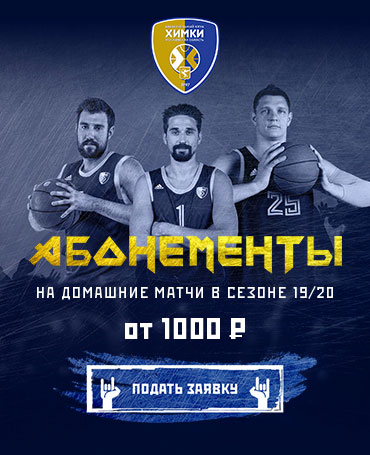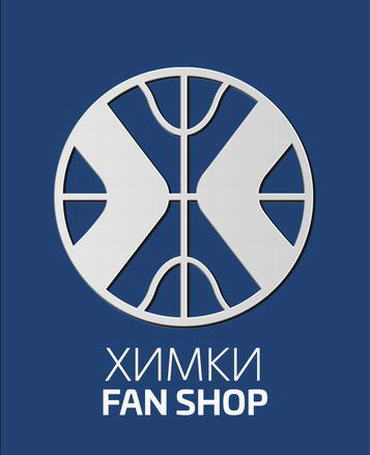Simone Pianigiani, Montepaschi Siena 28 april 2011
Euroleague.net
As a son of Siena, 41-year-old head coach Simone Pianigiani has devoted his professional life to lifting his hometown club into Europe's elite. Pianigiani was an assistant coach when Montepaschi Siena won its very first trophy, the 2002 Saporta Cup, when it reached Euroleague Final Fours the next two seasons, and when it claimed its first Italian League crown in 2004.
Since he became head coach in 2006, however, Siena has re-defined Italian basketball excellence with four consecutive national titles thanks to an incredible 179-14 record through Sunday. In 2008, Siena also reached its third Final Four, which was Pianigiani's first as a head coach. This season, Siena made spectacular comebacks in both the Top 16 and the playoffs to reach to the Turkish Airlines Euroleague Final Four again. The next step higher for Siena would be to reach its first title game, but to do that, it must stop mighty Panathinaikos in the semifinals. Only then would Siena have the chance to become the first Euroleague champion from Italy in a decade, and Pianigiani the chance to put his town on Europe's basketball map forever. "The fact that we're here challenging great clubs and great capitals with Siena, a little town that I think is an important model and a special place to play basketball, is already a reason to be proud," Pianigiani told Euroleague.net. "After all that we've done so far, being able to even take the last step would be a wonderful and unforgettable bit of history."
Hello, Simone. Each Final Four is different. What makes this one special for you and for Montepaschi Siena?
"Making the Final Four is always special because it means you’ve had a great journey and made it to the end of a hard road, facing the strongest teams in Europe. It is even more so for us this year because we're at the start of a new cycle. We have a new team, many of our players are debuting in the Euroleague, and we have had to overcome a lot of serious injuries. "
You have been through Final Fours first as an assistant and a head coach. What did those experiences teach you that you can use in Barcelona?
"My previous experiences taught me that anything is possible at the Final Four — anything can happen — and that the most important thing is not to be distracted by the atmosphere around you and just focus on basketball. The teams who maintain their identity, who do what they have done all season long, who are more consistent, will have more of a chance to win."
Your team's great comeback to win three games in a row, stop Olympiacos and reach the Final Four created great momentum: how can you keep that momentum until Barcelona?
"During that playoff series, my team demonstrated they have character and are able to react in times of trouble and under pressure – and that they can play good basketball. These are important qualities that we'll take to Barcelona with us now."
With Bo McCalebb healthy, Marko Jaric and Malik Hairston fully integrated — will your team be more complete in Barcelona than any time before this season?
"McCalebb is recovering after months of inactivity and he still needs time. The condition of individuals like him has to be evaluated at the moment. It’s too early to talk about it, but unlike the beginning of the season, we have more experience and that makes us more complete."
How do you want veterans like Rimas Kaukenas, Nikos Zisis, Shaun Stonerook and Ksistof Lavrinovic to use their experience in the Final Four?
"I would like it, even in the days preceding the event, if they were able to help the other players understand the atmosphere, the excitement and all that goes on around the event, around the team, on a media level as well. Everything is different at the Final Four, and we have to be more careful and focused on the game in order to play to the best of our ability."
Just the word Panathinaikos, your opponent in the semifinal, says a lot to anyone in basketball. What does it say to you?
"A team and a staff that were and are the most successful in Europe in the modern era, which means that they have great experience with these kinds of matches. As for us, our wish is to be able to overtake them this time."
Stopping Panathinaikos means handling a guy named Dimitris Diamantidis. Is it possible?
"We need to focus on the team. It's the team that we have to beat and that makes the difference. Diamantidis is clearly an absolute star, but Panathinaikos has a lot of players able to change the game. We can't worry about stopping one player; we have to stop and overcome the whole team. Concentrating just on basketball is the only way."
Of course, it also means coaching against Zeljko Obradovic. What makes him and his teams so difficult to beat?
"The toughness and mental strength that he always transmits to his players and they always demonstrate. Then there is the fact that, on a tactical level, they always force you to think a lot. You must find new and different solutions on the court if you want have a chance against them."
Montepaschi has been to three Final Fours but no title games. To reach that goal, the final, is extra pressure or a bigger motivation or both for you?
"It's just even more of a motivational factor because we've always gotten close to making the final, but then victory in the semifinals slipped away from us because of one detail. This might be the one time that details work in our favor."
You've already put the name of Siena beside historic ones like Real Madrid, Panathinaikos and Maccabi at this Final Four. To get its own place in European basketball history, does your club have to win a Euroleague title?
"We'll do everything that we think we're able to do. The fact that we're here challenging great clubs and great capitals with Siena, a little town that I think is an important model and a special place to play basketball, is already a reason to be proud. After all that we've done so far, being able to even take the last step would be a wonderful and unforgettable bit of history."
Hello, Simone. Each Final Four is different. What makes this one special for you and for Montepaschi Siena?
"Making the Final Four is always special because it means you’ve had a great journey and made it to the end of a hard road, facing the strongest teams in Europe. It is even more so for us this year because we're at the start of a new cycle. We have a new team, many of our players are debuting in the Euroleague, and we have had to overcome a lot of serious injuries. "
You have been through Final Fours first as an assistant and a head coach. What did those experiences teach you that you can use in Barcelona?
"My previous experiences taught me that anything is possible at the Final Four — anything can happen — and that the most important thing is not to be distracted by the atmosphere around you and just focus on basketball. The teams who maintain their identity, who do what they have done all season long, who are more consistent, will have more of a chance to win."
Your team's great comeback to win three games in a row, stop Olympiacos and reach the Final Four created great momentum: how can you keep that momentum until Barcelona?
"During that playoff series, my team demonstrated they have character and are able to react in times of trouble and under pressure – and that they can play good basketball. These are important qualities that we'll take to Barcelona with us now."
With Bo McCalebb healthy, Marko Jaric and Malik Hairston fully integrated — will your team be more complete in Barcelona than any time before this season?
"McCalebb is recovering after months of inactivity and he still needs time. The condition of individuals like him has to be evaluated at the moment. It’s too early to talk about it, but unlike the beginning of the season, we have more experience and that makes us more complete."
How do you want veterans like Rimas Kaukenas, Nikos Zisis, Shaun Stonerook and Ksistof Lavrinovic to use their experience in the Final Four?
"I would like it, even in the days preceding the event, if they were able to help the other players understand the atmosphere, the excitement and all that goes on around the event, around the team, on a media level as well. Everything is different at the Final Four, and we have to be more careful and focused on the game in order to play to the best of our ability."
Just the word Panathinaikos, your opponent in the semifinal, says a lot to anyone in basketball. What does it say to you?
"A team and a staff that were and are the most successful in Europe in the modern era, which means that they have great experience with these kinds of matches. As for us, our wish is to be able to overtake them this time."
Stopping Panathinaikos means handling a guy named Dimitris Diamantidis. Is it possible?
"We need to focus on the team. It's the team that we have to beat and that makes the difference. Diamantidis is clearly an absolute star, but Panathinaikos has a lot of players able to change the game. We can't worry about stopping one player; we have to stop and overcome the whole team. Concentrating just on basketball is the only way."
Of course, it also means coaching against Zeljko Obradovic. What makes him and his teams so difficult to beat?
"The toughness and mental strength that he always transmits to his players and they always demonstrate. Then there is the fact that, on a tactical level, they always force you to think a lot. You must find new and different solutions on the court if you want have a chance against them."
Montepaschi has been to three Final Fours but no title games. To reach that goal, the final, is extra pressure or a bigger motivation or both for you?
"It's just even more of a motivational factor because we've always gotten close to making the final, but then victory in the semifinals slipped away from us because of one detail. This might be the one time that details work in our favor."
You've already put the name of Siena beside historic ones like Real Madrid, Panathinaikos and Maccabi at this Final Four. To get its own place in European basketball history, does your club have to win a Euroleague title?
"We'll do everything that we think we're able to do. The fact that we're here challenging great clubs and great capitals with Siena, a little town that I think is an important model and a special place to play basketball, is already a reason to be proud. After all that we've done so far, being able to even take the last step would be a wonderful and unforgettable bit of history."
Source
http://www.euroleague.net/features/interviews/euroleague-...



